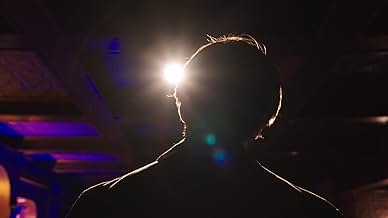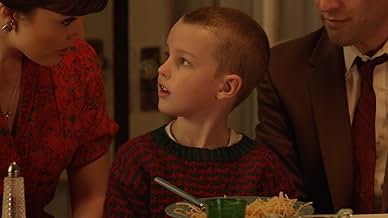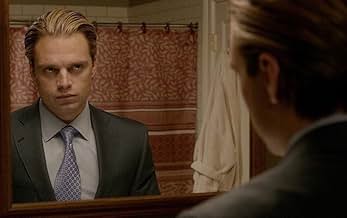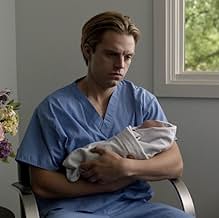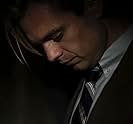IMDb RATING
5.6/10
1.9K
YOUR RATING
A man struggles with the tragic memories of his past to make sense of his present, but soon realizes that time isn't the enemy he thinks it is.A man struggles with the tragic memories of his past to make sense of his present, but soon realizes that time isn't the enemy he thinks it is.A man struggles with the tragic memories of his past to make sense of his present, but soon realizes that time isn't the enemy he thinks it is.
- Director
- Writers
- Stars
- Awards
- 5 nominations total
- Director
- Writers
- All cast & crew
- Production, box office & more at IMDbPro
Featured reviews
As a mature adult male, I saw so many parallels to my own life/loves/mistakes/regrets that it was hard to watch at some points. But isn't that what good films can do? Take you so deep into the character (J.K.Simmons is great!) that you feel their pain. A must see for anyone who's ever made a mistake in their life and felt alone.
Acting at every age level in this film is exceptional from C.K. Simmons on down. Cute kids offset the struggles of their parents in this story. Tender couples scenes and family moments help soften the extreme regrets and personal isolation depicted to have resulted from alcoholism. There is no happy, heroic rehabilitation shown here. But the human foils and frailties are worth watching.
Excellent story showing struggles of an old drunk man who fights his addiction all his life, slowly ruining it till he's left alone. The storyline is short and filled with really touching moments. Definitely recommend.
Greetings again from the darkness. So many are haunted by the past - unable to move beyond either having been dealt a bad hand or having created one through their own actions. The film opens on a gaunt Steve (JK Simmons), alone in his apartment, and seemingly barely functioning. He is contemplating suicide with a shiny gun he keeps on a coffee table in a home as unkempt as himself. His only breaks are to frantically search the house for another bottle of vodka, or to listen to a phone message that kicks off yet another painful memory.
The film features three timelines for Steve: the despondent, suicidal elder; the twenties and thirties version (Sebastian Stan); and the 1960's childhood Stevie (Iain Armitage, "Young Sheldon"). Those young years for Stevie recall his always-annoyed mom (Mandy Moore) and his fun-loving dad (Max Greenfield), while the young adult years show us his romance and marriage with Karen (Maika Monroe). It's not long before we recognize the common thread that binds the timelines: alcoholism. First his dad's, then his own.
Our memories tend to return in moments and flashes of events. This becomes more evident and the memories less reliable when years of alcohol abuse are in play. The flashes include the courtroom and judge of his parents' divorce, his dad drinking, his own courting of Karen and the booze that accompanied it, the dissolution of his own marriage, and an unspeakable tragedy that ruined his life without taking it ... something he is looking to remedy with that gun.
JK Simmons is remarkable here. His Steve is mired in loneliness, depression, guilt, and regrets - each amplified through booze. Simmons' performance offers up not a single line of dialogue. He never leaves the apartment. He never has human interaction. Yet despite all of this, he never leaves our thoughts as he pinballs through his memories. Mr. Stan and Ms. Monroe provide the most telling scene outside of Simmons' segments. Notice the difference in demeanor as he tells her he heard the shot when his dad killed himself vs how she states her mother died from cancer. This is the contrast of moving on no matter what life serves up, or being burdened with that weight forever.
The film was directed by Mr. Simmons' wife Michelle Schumacher, and she co-wrote the screenplay with Tony Cummings (son of Emmy winning actor Robert Cummings). Mr. Cummings also appears as the judge in the divorce hearing. The film was originally shown in 2017, but is only now getting released. For fans of JK Simmons, it's a must see.
The film features three timelines for Steve: the despondent, suicidal elder; the twenties and thirties version (Sebastian Stan); and the 1960's childhood Stevie (Iain Armitage, "Young Sheldon"). Those young years for Stevie recall his always-annoyed mom (Mandy Moore) and his fun-loving dad (Max Greenfield), while the young adult years show us his romance and marriage with Karen (Maika Monroe). It's not long before we recognize the common thread that binds the timelines: alcoholism. First his dad's, then his own.
Our memories tend to return in moments and flashes of events. This becomes more evident and the memories less reliable when years of alcohol abuse are in play. The flashes include the courtroom and judge of his parents' divorce, his dad drinking, his own courting of Karen and the booze that accompanied it, the dissolution of his own marriage, and an unspeakable tragedy that ruined his life without taking it ... something he is looking to remedy with that gun.
JK Simmons is remarkable here. His Steve is mired in loneliness, depression, guilt, and regrets - each amplified through booze. Simmons' performance offers up not a single line of dialogue. He never leaves the apartment. He never has human interaction. Yet despite all of this, he never leaves our thoughts as he pinballs through his memories. Mr. Stan and Ms. Monroe provide the most telling scene outside of Simmons' segments. Notice the difference in demeanor as he tells her he heard the shot when his dad killed himself vs how she states her mother died from cancer. This is the contrast of moving on no matter what life serves up, or being burdened with that weight forever.
The film was directed by Mr. Simmons' wife Michelle Schumacher, and she co-wrote the screenplay with Tony Cummings (son of Emmy winning actor Robert Cummings). Mr. Cummings also appears as the judge in the divorce hearing. The film was originally shown in 2017, but is only now getting released. For fans of JK Simmons, it's a must see.
What I liked about this film: the acting was excellent, very evocative of the emotions of the situations being shown.
But I'm not sure what exactly happened in certain scenes. I guess we're supposed to assume the details don't really matter or that he's so drunk he can't remember or doesn't want to remember. The ending is what confused me the most. Was he imagining something that he wished had happened, or just felt better knowing that's what he would do if he could?
I suppose this film will appeal to people who had alcoholics in their family. I didn't, so unfortunately, it was a bit too confusing for me.
But I'm not sure what exactly happened in certain scenes. I guess we're supposed to assume the details don't really matter or that he's so drunk he can't remember or doesn't want to remember. The ending is what confused me the most. Was he imagining something that he wished had happened, or just felt better knowing that's what he would do if he could?
I suppose this film will appeal to people who had alcoholics in their family. I didn't, so unfortunately, it was a bit too confusing for me.
Did you know
- TriviaSamuel Beckett's classic one-act play "Krapp's Last Tape," first performed on October 28, 1958, has a similar premise and probably was an inspiration for the screenplay.
- Crazy creditsThere is one more scene after the ending credits.
- ConnectionsReferenced in Late Night with Seth Meyers (2014)
- SoundtracksNot Who We Were
Composed and Performed By Em Beihold
- How long is I'm Not Here?Powered by Alexa
Details
- Runtime1 hour 21 minutes
- Color
Contribute to this page
Suggest an edit or add missing content



